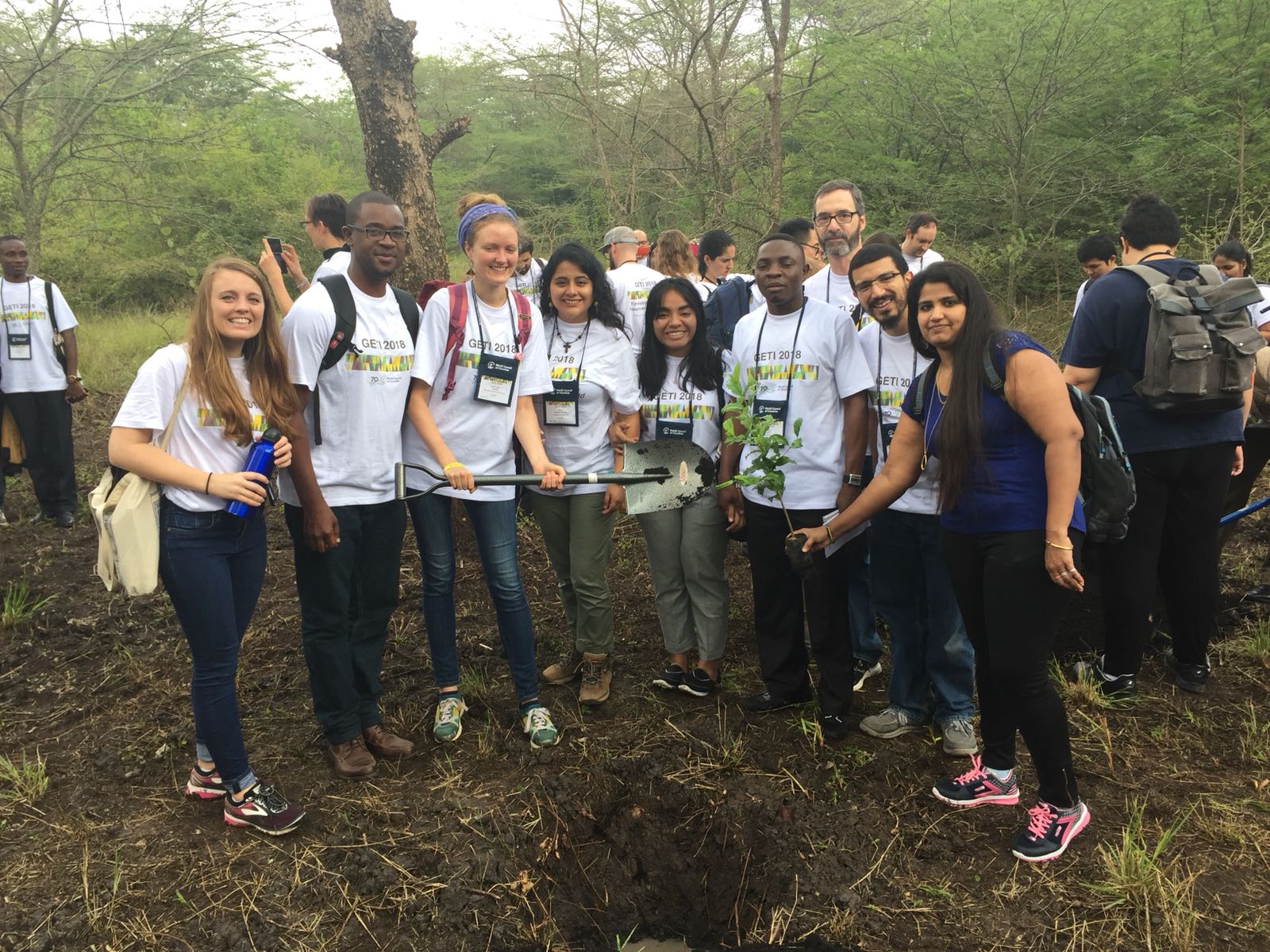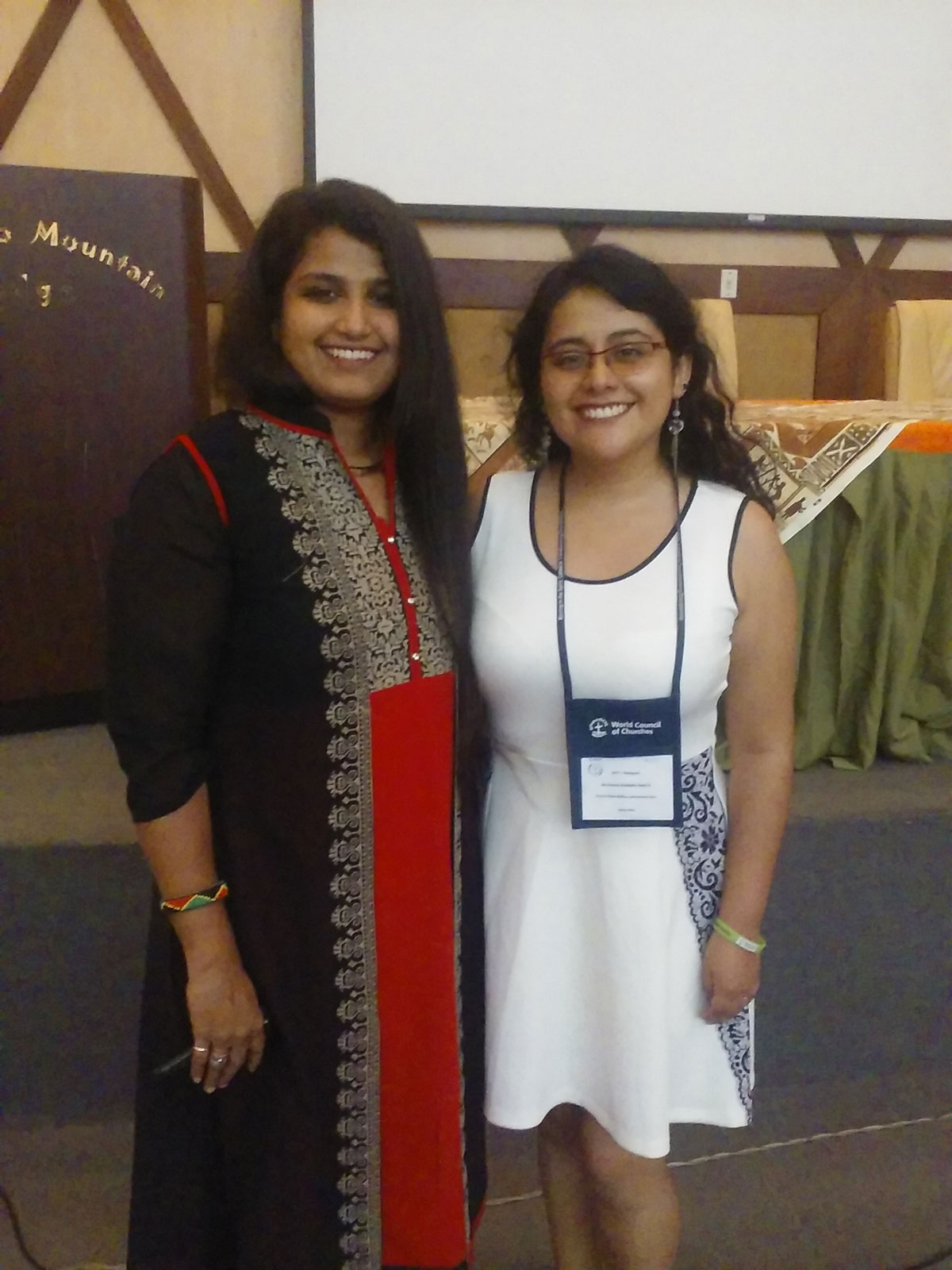A Letter from Karla Koll, serving in Costa Rica
April 2018
Write to Karla Ann Koll
Individuals: Give online to E200373 for Karla Ann Koll’s sending and support
Congregations: Give to D506645 for Karla Ann Koll’s sending and support
Churches are asked to send donations through your congregation’s normal receiving site (this is usually your presbytery)
“I never knew there were so many types of Christianity.” Nataly Romero, a student at the Latin American Biblical University (UBL), shared these words after she had the opportunity to experience the worldwide church as part of the Global Ecumenical Theological Institute (GETI 2018), a short-term study program held in conjunction with the Conference on World Mission and Evangelism in Arusha, Tanzania, in March. GETI brought together 110 young theologians from forty countries and fifteen church families to explore the debates on the understanding and practice of mission today.
When the UBL received an invitation last year to suggest candidates from Latin America to participate in GETI 2018, we immediately thought of Nataly, who is in the finally stages of her licenciate degree in biblical sciences. Due to the requirement that students be able to do academic work in English, few Latin Americans were eligible. Nataly, who studied tourism before she embarked on theological studies, speaks English, as well as French and Portuguese. Nataly’s church, the Methodist Church of Peru, is a member of the World Council of Churches. Shortly after Nataly received her acceptance letter, I learned that I had been invited to be part of the conference interpretation team. We would be in Tanzania together.
As the GETI students arrived to begin their program on March 5, Nataly was already feeling overwhelmed by the variety of Christian voices and perspectives. The diversity was even greater when the conference itself started on March 8 with over one thousand Christians from around the world. Protestants, Roman Catholics, Orthodox, Evangelicals, Pentecostals and members of African Independent Churches gathered in one hall. The worship experiences also gave expression to the gathered diversity. One service included an African image of Mary. Nataly says that though she didn’t understand a word when an Eastern Orthodox group sang part of their liturgy during one of the noon prayers, she could sense the communication with God. The respect shown in the capacity for listening and dialoguing with one another as GETI students and conference participants shared their different experiences and understandings of mission made a strong impression on Nataly.
Nataly’s GETI study group included two Presbyterians from Kenya, an Anglican from India, a Lutheran from Germany, a woman from one of the Reformed churches in Indonesia, an Anglican from the United States, an evangelical man from Puerto Rico, and a Baptist from Jamaica. One of the facilitators of her group was Youstina Nagy from the Coptic Church of Egypt. Nataly had learned about the Coptic Church, as well as other Eastern Orthodox churches, in the history of Christianity course she took with me two years ago, but listening to Youstina’s experience and perspective was the first time she had interacted with an Orthodox person.
Nataly felt the most affinity with Vedanayagam Vethakani, the doctoral student from India. In both India and Latin America, the poor and vulnerable are at the center of the way theology is done. The two young women also shared another connection, their struggles to be ordained as pastors in their respective churches. Vedanayagam has not been ordained, even though she has more theological training than is required in her church. Nataly hopes to be ordained. On the evening the GETI students presented a program to the conference, Nataly spoke of the double discrimination she faces in the church as a woman who is also young.
From the opening plenary, the struggles of African women for life and justice infused the conference theme, “Moving in the Spirit: Called to Transforming Discipleship,” with urgency. In her keynote address, Matule Mulenga Kaunda of Zambia lifted up the importance of storytelling as a source for rethinking mission by telling her own story of how she lost her mother to AIDS and became the sole caregiver for her two younger sisters at age seventeen. The church needs to be in the margins, where people are suffering and looking for hope. Micheline Kamba Kasongo of Congo, speaking out of the context of the world’s longest war as well as from her own experience as a person living with disabilities, called for mission to focus on social and spiritual healing. Ghanian theologian Mercy Amba Oduyoye, with whom I had the privilege of taking a class during my studies in Princeton, was honored by the conference as a living ancestor. At eighty-five, she continues to expand the vision of African women’s theology. She offered the GETI students an image of God as an African mother whose breasts provide nourishment to the world.
“My experience as part of GETI made me feel very proud of the theological education I have received at the UBL,” Nataly told me. Even though most of the students in GETI were working on master’s or doctoral degrees, Nataly found she was as theologically conversant as those in more advanced programs. Now she knows that the UBL, the leading ecumenical institution for theological education in Latin America, prepares people to participate in theological discussions at the global level. She takes the experience of this encounter with the global church with her as she returns to Peru in April to serve as a lay pastor in a local congregation.
The Arusha Conference on World Mission and Evangelism issued a declaration that says in part, “Discipleship is both a gift and a calling, to be active collaborators with God for the transforming of the world.” I am grateful to all the churches and individuals who have felt a call to support Presbyterian World Mission and my work at the Latin American Biblical University as part of their discipleship. Without your gifts and prayers, we would not be able to prepare gifted leaders like Nataly to live out their own callings to serve as Christ’s disciples in transforming their communities and churches. Thank you very much. I hope I can continue to count on your support.
Blessings,
Karla
![]() You may freely reuse and distribute this article in its entirety for non-commercial purposes in any medium. Please include author attribution, photography credits, and a link to the original article. This work is licensed under a Creative Commons Attribution-NonCommercial-NoDeratives 4.0 International License.
You may freely reuse and distribute this article in its entirety for non-commercial purposes in any medium. Please include author attribution, photography credits, and a link to the original article. This work is licensed under a Creative Commons Attribution-NonCommercial-NoDeratives 4.0 International License.

